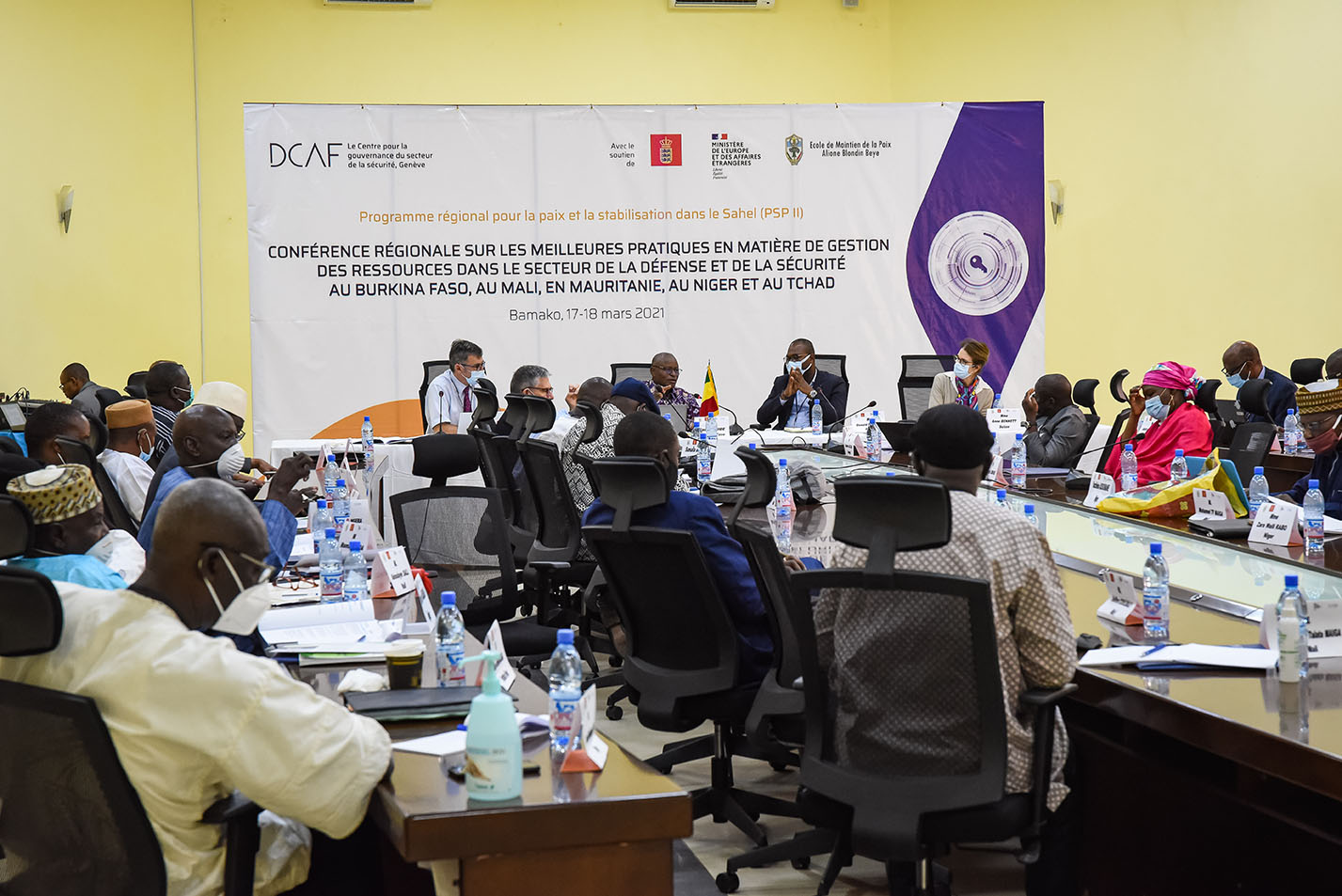Introducing better oversight on spending and resource management by police and armed forces in the Sahel
Transparent and rational resource management is a core component of good governance of the security sector. Poor planning, bad accounting practices, waste, and corruption all represent a risk to a country’s stability and development. Poorly deployed resources reduce the effectiveness of forces; corruption leads to frustration and grievances which can be used by extremists to mobilize violence.
This is critical in the Sahel states where increased violence has been traced to decades of weak governance. At the same time a deeply rooted culture of secrecy in matters concerning the security sector has limited the ability of the executive, parliaments, audit bodies, civil society, and the public to effectively oversee financial management.
Despite the importance of this topic, it is often not systematically addressed in security sector reform discussions. DCAF is trying to change that. In early 2021 we gathered delegates and experts from Burkina Faso, Mali, and Niger to identify and promote good practices in resource management and financial oversight. Together they developed recommendations to improve transparency and accountability in their own defence and security institutions.

In March 2021, DCAF convened a regional conference on best practices in resource management in the defence and security sectors, bring together delegates from Burkina Faso, Niger and Mali at the The Alioune Blondin Beye Peacekeeping School (EMP-ABB) in Bamako. Photo: Nicolas Réméné
PROFOUND CHANGE REQUIRED
Unsurprisingly, achieving transparency on how resources are allocated and used will require major changes in how armed forces manage information and communicate with the public. Delegates from all three countries cited the negative impact of corruption – or the public’s perception of corruption - on the rule of law and the state’s ability to maintain public order. People’s confidence in public institutions is at the core of democratic governance. Evidence shows a significant correlation between corruption, and a lack of trust in public institutions.
There are, however, good practices emerging in the area of transparency and accountability: the adoption of procedure manuals for the procurement of security equipment; the periodic posting online of budget information related to the defence and security sector by the Ministry of Finance; and the increased capacity of external oversight actors such as parliamentary commissions, line ministries, and the media to engage and shine a spotlight on financial topics related to security and defense.
TAKING ACTION ON ANTI-CORRUPTION
Based on the advice shared by experts in the regional conference in early 2021, DCAF set out to define priorities and by the end of the year a number of follow-up actions had taken place. These include in Burkina Faso, where the Autorité supérieure de contrôle d'Etat, or ASCE, the country’s main anti-corruption institution, took ownership of the subject by bringing together the Burkinabe participants to review the conference report and recommendations, and articulate an action plan. It is already being implemented, with the support of DCAF.
We also produced two new practical tools to showcase best practices and support training, namely a tool focussed on Sahel, "Strengthening Financial Control of the Security Sector in the Sahel", and the latest in the ECOWAS series of Toolkits for SSRG in West Africa entitled "Good Financial Governance of Security and Defense Institutions", which is coming out in February 2022. These tools are aimed at practitioners and policymakers involved in the governance of the security sector at the executive and parliamentary levels (especially committees in charge of defence and security, as well as those in charge of budget and finance matters), and also civil society stakeholders with an interest in public finances and/or the security sector.
Security sector reform and governance is a daunting challenge for states in the Sahel region where ongoing military conflict, a prevalence of small arms, corruption, and poverty are compounded by weak institutions, impunity, and an underdeveloped culture of accountability. Yet we’re seeing how civil society and academics are already conducting public and inclusive debates on public finance management. This public debate is increasingly supported by a media capable of conducting free and independent investigations and publishing information on the use of the financial resources of the security sector. In the end, everyone benefits when state resources are mobilized according to the real security needs of citizens.
 Share on Facebook
Share on Facebook Share on Linkedin
Share on Linkedin Share on Twitter
Share on Twitter